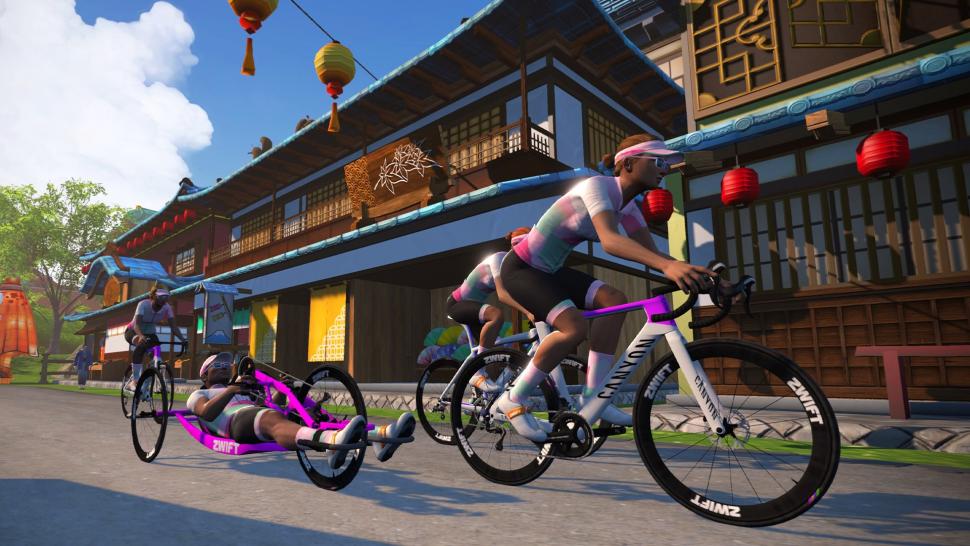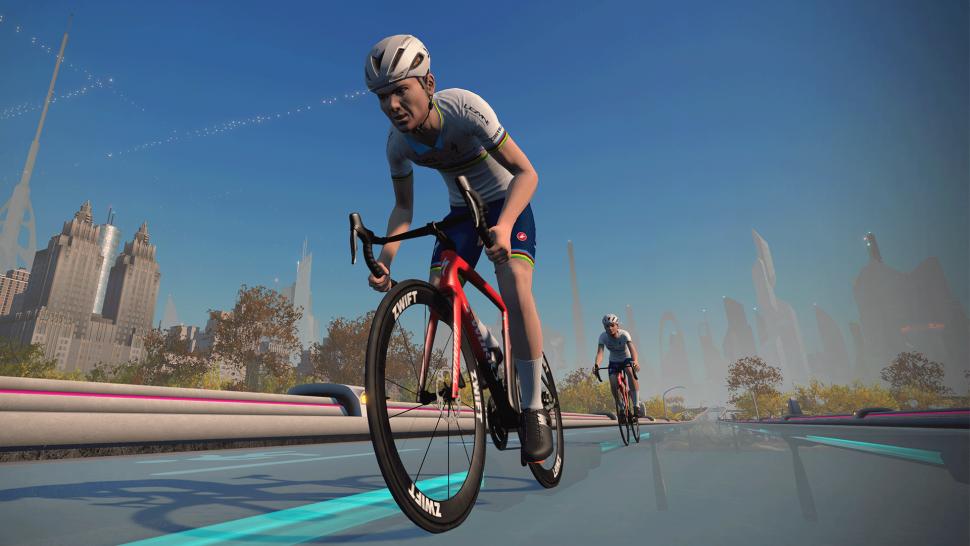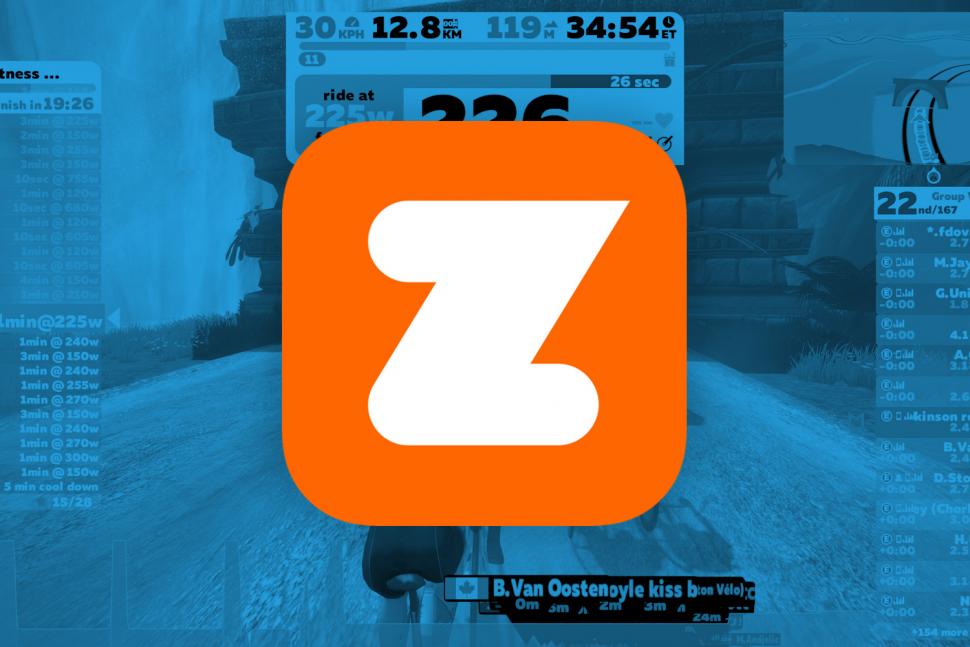- News
- Reviews
- Bikes
- Accessories
- Accessories - misc
- Computer mounts
- Bags
- Bar ends
- Bike bags & cases
- Bottle cages
- Bottles
- Cameras
- Car racks
- Child seats
- Computers
- Glasses
- GPS units
- Helmets
- Lights - front
- Lights - rear
- Lights - sets
- Locks
- Mirrors
- Mudguards
- Racks
- Pumps & CO2 inflators
- Puncture kits
- Reflectives
- Smart watches
- Stands and racks
- Trailers
- Clothing
- Components
- Bar tape & grips
- Bottom brackets
- Brake & gear cables
- Brake & STI levers
- Brake pads & spares
- Brakes
- Cassettes & freewheels
- Chains
- Chainsets & chainrings
- Derailleurs - front
- Derailleurs - rear
- Forks
- Gear levers & shifters
- Groupsets
- Handlebars & extensions
- Headsets
- Hubs
- Inner tubes
- Pedals
- Quick releases & skewers
- Saddles
- Seatposts
- Stems
- Wheels
- Tyres
- Health, fitness and nutrition
- Tools and workshop
- Miscellaneous
- Cross country mountain bikes
- Tubeless valves
- Buyers Guides
- Features
- Forum
- Recommends
- Podcast
OPINION
Zwift's partnership with Red Bull and BORA–Hansgrohe to innovate talent identification raises policy and priority questions
 2022 Zwift Tour of Makuri Islands - 1
2022 Zwift Tour of Makuri Islands - 1"A diamond in the rough is still a diamond" were the words of Zwift's Chief Marketing and Revenue Officer Steve Beckett, as he touted the announcement of the company's partnership with Red Bull and BORA–Hansgrohe to "innovate talent ID in sport."
On 1 February 2023, BORA–Hansgrohe and Red Bull are launching ‘Red Bull Junior Brothers’, a global talent scouting programme. By analysing Zwift and Strava segment ride data submitted by qualifying applicants through May 2023, the group aims to discover the next generation of professional road cyclists.
At the culmination of the Zwift Academy-type program, BORA–Hansgrohe will award the two most polished young riders a contract with their U19 team, Auto Eder, and Red Bull will offer an athlete partnership deal.
Beckett's colloquialism overshadows Zwift's untapped youth development and talent identification potential. However, it aptly describes the company's confounding policy towards U16 racers and highlights the streamlining of project prioritisation away from some highly sought-after feature upgrades.
Beckett and Zwift are worthy of praise for their foresight in providing an online healthy gaming experience for youths under 16 free of charge. According to a CDC report, the prevalence of childhood obesity was 19.3% and affected 14.4 million children and adolescents in the United States alone between 2017 and 2020. The ongoing stress, fear, grief, and uncertainty created by the COVID-19 pandemic has weighed heavily, with many children and teens having difficulty coping emotionally.
Youth are cycling's lifeblood, and providing an environment to introduce cycling and bike racing to a more significant number ensures the future and potential for growth and enhancement of the athlete, the individual, and the sport. BORA–Hansgrohe and Red Bull's recent announcement is an acknowledgment and signals the future for cycling's youth.
Zwift was short-sighted in overlooking this future when amending its ruleset to prohibit U16 racers from participation. On 7 September 2021, Zwift changed the ruleset governing its Zwift Racing League to read: “Riders must have reached sixteen (16) years of age by the event start date to be eligible to participate in any Zwift Racing League events."
The Zwift Racing League (ZRL) is the platform's flagship community racing venue. The World Tactical Racing League (WTRL) is a third-party partner that deftly organises and promotes the highly popular league. The decision to exclude U16 racers raised community ire and questioned why Zwift permitted youth racers to participate in all other races on the platform.
Chris Snook, the head of Zwift PR, commented at the time on Zwift’s responsibility as an organisation to protect the welfare of children on its platform.
“We are aware of the feedback from the Zwift Community in response to the age rule that has been implemented for the upcoming Zwift Racing League”, said Snook.
“This rule was updated as a result of changes we are making to better safeguard our community of junior Zwifters, and to ensure that we continue to comply with international legislation designed to protect minors online and make sure that Zwift continues to be a fun and safe place for all to ride, train and race.
“We are proud to be able to offer Zwift to under 16s free as part of our mission to make more people, more active, more often, but we recognise this rule change comes as a disappointment for our younger Zwifters.
“…the changes to rules for the Zwift Racing League are linked to our child privacy policy. The changes apply to WTRL as a third-party race organiser and therefore will not apply to all racing on Zwift.
“WTRL is a highly professional and valuable partner to Zwift and has been a leading champion for Zwift community racing for many years. We are grateful for their continued support in making the Zwift Racing League a reality for many thousands of Zwift racers.”
There were rumours then of introducing an U16 ZRL, but nothing materialised. When Zwift hired former Amazon Kids+ (a hardware/software/content subscription service) executive Kurt Beidler as Co-CEO in December 2022, the rumblings grew louder. So why embrace the platform's youth as the innovation of cycling talent identification now?
When recently asked, Snook reiterated “We've always been proud to offer Zwift to U16s free of charge as part of our mission to make more people, more active, more often, and to encourage the next generation to lead a more active lifestyle. However, working with U16s is complex.
“Our primary concern is to safeguard these users and comply with guidelines set by COPPA and GDPR - all U16 Zwift users require parental consent to use the platform. Due to these necessary security measures, we do not currently host children's specific competitions or events.
I know this might be frustrating for some passionate children, but their safety is our primary concern."
For an international company like Zwift, the challenge of remaining up-to-date with policy changes and ensuring compliance is daunting. Keeping current with each country’s regulations' nuance, subtlety, and variances among the states and regions is a daunting and intimidating task, mainly when punitive fines and penalties exist.
It requires companies to scrutinise their practices and how data moves through their operation, is processed, and disseminated. The request for consent must be explicit and individualised per the above constraints. The introduction of financial concerns increases that burden.
Tremendous resources are required to meet the standard. In many cases, companies will appoint a data-protection team to oversee the process. The commitment is considerable. However, countless international companies have committed to youth and profit within the complexities of the legal landscape.
Moreso, community-driven youth leagues and development programs presently thrive on the Zwift platform. They are a proof-of-concept of what motivated organisers can do successfully by following a guideline for safe and appropriate online U16 racing. The possible elements include:
- Information about community guidelines, privacy policies, and terms and conditions are easily accessible and visible. Highlight areas that pertain to children and parents and creatively present interesting, simple, and understandable information.
- Empower parents to be more in control of their child’s racing experience through education in how the game works, their child’s interaction with it and fellow competitors, and safe online behaviour.
- Outline clear community guidelines on acceptable behaviour. Emphasise these guidelines by identifying and actively managing inappropriate behaviour during in-game communication.
- Enable community policing and user reporting of inappropriate content through ‘flagging’ mechanisms. Promote community involvement by providing prompt responses to reports, investigation outcomes, the ability to appeal decisions, and strict action against abusers.
- Encourage individual streamers to promote positive examples of appropriate online behaviour and education and support an inclusive and nurturing environment.
- Creation of an online Youth Coach Licensing program whereby a Junior cyclist will race on a team under the supervision of a certified non-parent supervisor who has met education and training standards, undergone a SafeSport background check, and has agreed to withhold the highest level of adult to minor conduct.
Why not a Zwift Junior Racing League? Zwifters voted for the long-awaited feature request alongside several others. Like much-needed accessibility adaptations for the visually impaired, an underserved subset that feels "Zwift is probably the most inaccessible app out there."
Zwifters may find the straight answer in the words of Zwift CEO Eric Min. Following a high-profile cheating scandal in February 2022, Mr. Min announced a "plan to introduce a bug bounty program that will make it easier for Zwifters to highlight issues and reward them for doing so.”
Min added: “We will need time to develop this program, but we will share information in due course."
The statement placated the vocal racing minority until the Eddy Hoole data hack during a 2023 UCI Esports World Championships qualifier event on Zwift in December 2022 rubbed salt in the wound. The Zwift racing community called the platform's credibility and that of its CEO into question. Mr. Min made a statement on December 24, 2022, when the Christmas Eve call-out was too much to ignore:
"The bounty program that I had committed to earlier this year was right before a number of internal changes at Zwift. At this time, a bounty program is not our highest priority, given all that we want to do for the community.
“It’s not to say we won’t implement one like many of the largest Internet companies but until it’s prioritised and properly resourced, we can’t commit to the program or a timeline. I know this is not what you want to hear, but this is where we are right now."
A diamond in the rough is still a diamond. Zwift is a gem, but a relatively young and evolving company needs to clarify its message and hone its priorities to survive, understandably so.
The global economic burden on fitness tech companies in the rebound following the pandemic boom is a challenge. Zwift’s “right-sizing” effort became evident when the company downsized its staff by approximately 20 percent in May 2022. Despite this, Zwift and Wahoo-RGT introduced several significant release updates to enhance the user experience this trainer season.
> Are virtual training platforms still getting better and better?
Many companies feel the pinch forcing them to streamline their workforce and scrutinise asset allocation to be successful. Much to the displeasure of the heedless entitled subscriber base minority.
In a recent road.cc report, S&P Global signalled potential doom for rival Wahoo, citing 56 percent third-quarter sales declines compared to last year and an estimated 35 percent in the fourth. Significant job cuts at Strava and Specialized confirm Halfords’ claim that cautionary spending has led to a 20 percent decline in the cycling market this year.
However, with the right amount of pressure placed in the right spots, the Zwift virtual cycling platform will be an invaluable boon to all cyclists, young and old. Good things come to those who wait.
A physical therapist with over 25 years of experience, Christopher Schwenker is on a journey to give back to the cycling community for rewarding experiences and fulfilling relationships through the pages of his virtual cycling blog, The Zommunique.com. He rode his bike across the US in 2022 to raise awareness of his cycling-related non-profit, The DIRT Dad Fund.
More Opinion
Latest Comments
- froze 3 sec ago
I pray Wiggins has found peace and happiness; he was a great cyclist, no one can take that away from him. And a huge thanks to Lance Armstrong for...
- Laz 7 min 41 sec ago
geeze....but a carbon fork, huh ? they should provide a rim brake option for us oldtimers who have matured to having more disposable income than...
- Laz 22 min 3 sec ago
so, instead of having both hands on your brakes controling your steering and being ready to avoid a collision, you now are required to imperil...
- lonpfrb 5 hours 24 min ago
If this government were truly interested in change, and joined up government between...
- lonpfrb 5 hours 47 min ago
It's easy to remove the pipe from the fasteners which are C shaped so able to hold but not trap the pipe. Filtering through traffic is then...
- brooksby 5 hours 54 min ago
And you know that because...? I'd read this elsewhere and was surprised to read the story on here - hadn't thought they were "cyclists".
- wtjs 6 hours 5 min ago
What was on offer only 2 weeks ago was either 'world' for £20 or tiny areas such as 'Blackpool area' for £5 each or something. You couldn't just...
- Simon E 6 hours 27 min ago
“fastest, lightest, and most durable road tyres yet” Yeah right. "Strong, light, cheap. Pick two."
- David9694 6 hours 51 min ago
Surely a penalty notice will have been delivered by now, which will state where the car is parked?


Add new comment
1 comments
I think there's a world of difference between smallish community-led groups for U16s, and the corporation itself actively advertising and promoting events to children.
Different jurisdictions have (or will have) different laws and expectations about safe online access for minors, and it seems non-trivial to design and police something that works for all. Zwift won't have the user base or revenues from U16s to put the sort of money in that a Sony or Microsoft can.
In principle it'd be nice if Zwift could do a youth series (beyond literally giving their product away to them). But, I can see that legally and reputationally it would present a lot of risks without much reward.
I'd kind of prefer youngsters to be messing about outside on their bikes anyway, they can piss about with intervals and increasing their FTP when they've lost all real joy in life like me.